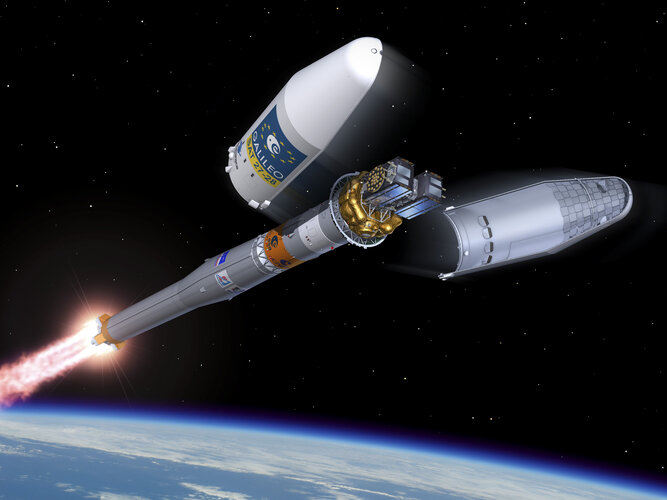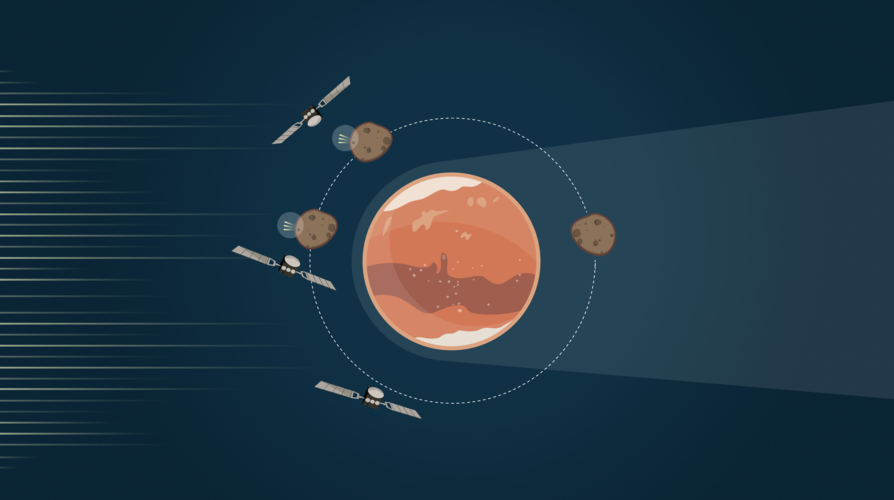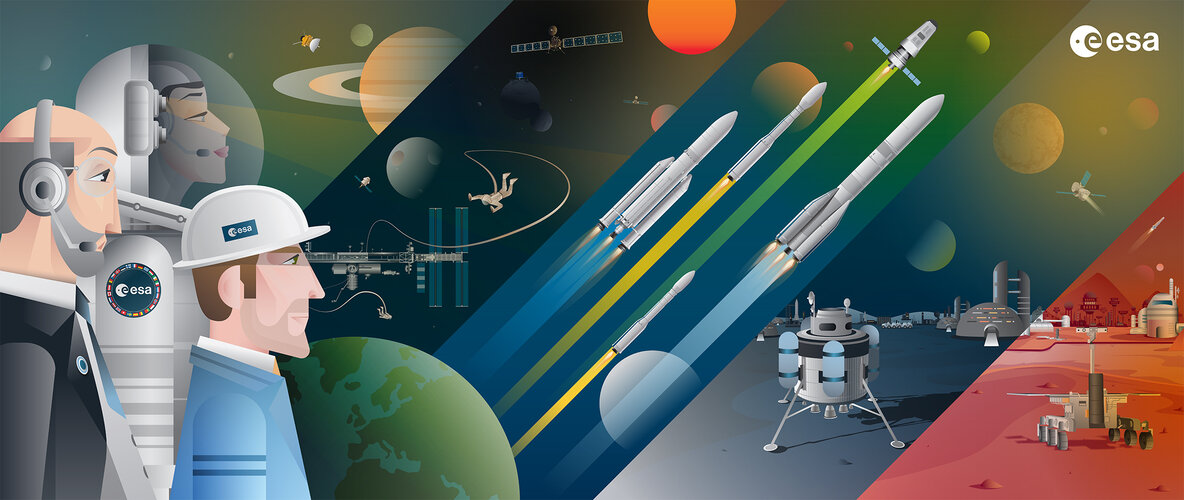
Copernical Team
Lead 'em then leave 'em: tech founders who quit
 Former Twitter CEO Jack Dorsey joins a long list of tech gurus who've quit the companies they founded. But what makes them step aside - and is it good for business?
From Microsoft's Bill Gates to Amazon's Jeff Bezos, most of the people who created the Silicon Valley giants that dominate our lives have since handed the reins to someone else.
"There's a lot of talk about the importance o
Former Twitter CEO Jack Dorsey joins a long list of tech gurus who've quit the companies they founded. But what makes them step aside - and is it good for business?
From Microsoft's Bill Gates to Amazon's Jeff Bezos, most of the people who created the Silicon Valley giants that dominate our lives have since handed the reins to someone else.
"There's a lot of talk about the importance o US Space Force raises alarm over China's orbital hypersonic weapons
 The Pentagon suggests that China tested a fractional orbital bombardment system (FOBS) earlier this year. According to US military observers, China's alleged new orbital hypersonic glide vehicle weapon poses a huge challenge to the Pentagon since the US does not have active countermeasures to these arms.
China's new hypersonic weapon system is orbital in nature and could be able to stay in
The Pentagon suggests that China tested a fractional orbital bombardment system (FOBS) earlier this year. According to US military observers, China's alleged new orbital hypersonic glide vehicle weapon poses a huge challenge to the Pentagon since the US does not have active countermeasures to these arms.
China's new hypersonic weapon system is orbital in nature and could be able to stay in DLR inaugurates its Institute for the Protection of Terrestrial Infrastructures
 Everyday life in an increasingly digitalised and connected world depends on functioning infrastructure. The economy and public life would quickly break down without working power grids, water supplies, hospitals and transport networks. The new German Aerospace Center (Deutsches Zentrum fur Luft- und Raumfahrt; DLR) Institute for the Protection of Terrestrial Infrastructures, located in Sankt Aug
Everyday life in an increasingly digitalised and connected world depends on functioning infrastructure. The economy and public life would quickly break down without working power grids, water supplies, hospitals and transport networks. The new German Aerospace Center (Deutsches Zentrum fur Luft- und Raumfahrt; DLR) Institute for the Protection of Terrestrial Infrastructures, located in Sankt Aug AFRL selects 10 universities for satellite program
 The Air Force Research Laboratory's University Nanosatellite Program (UNP) has selected 10 universities to participate in the upcoming 2-year partnership to design, fabricate and test small satellites.
At the recent Flight Selection Review for the program's tenth cycle, 3 of 10 universities were chosen to remain in the program and continue development of their CubeSats. These universities
The Air Force Research Laboratory's University Nanosatellite Program (UNP) has selected 10 universities to participate in the upcoming 2-year partnership to design, fabricate and test small satellites.
At the recent Flight Selection Review for the program's tenth cycle, 3 of 10 universities were chosen to remain in the program and continue development of their CubeSats. These universities Watch Galileo launch on night of 2-3 December

The launch of Europe’s latest Galileo satellites is now due to take place tonight, very early on Friday morning. The original launch date was postponed due to adverse weather conditions at the launch site.
ESA’s Mars Express unravels mystery of martian moon using 'fake' flybys

By performing a series of real and 'fake' flybys, ESA’s Mars Express has revealed how Mars’ largest moon, Phobos, interacts with the solar wind of charged particles thrown out by the Sun – and spotted an elusive process that has only been seen at Phobos once before.
ESA moves forward with your ideas for 11 pioneering missions

You spoke, we listened. Last September, we asked for your ideas for future space missions. Our goal was to tap into the insight, expertise and creativity of European citizens, companies and academia to help us plan for the future. Based on over 200 ideas, ESA Discovery & Preparation is now launching 11 new activities over the course of the coming year, that will together shape the future of space.
Rocket Lab closes acquisition of space hardware company Planetary Systems
 Rocket Lab USA, Inc. has closed the previously-announced transaction to acquire Planetary Systems Corporation (PSC), a Maryland-based spacecraft separation systems company, for $42 million in cash and 1,720,841 shares of the Company's common stock, plus the potential for an additional 956,023 shares of common stock for a performance earnout based on PSC's CY 2022 and 2023 financial results. Rock
Rocket Lab USA, Inc. has closed the previously-announced transaction to acquire Planetary Systems Corporation (PSC), a Maryland-based spacecraft separation systems company, for $42 million in cash and 1,720,841 shares of the Company's common stock, plus the potential for an additional 956,023 shares of common stock for a performance earnout based on PSC's CY 2022 and 2023 financial results. Rock Record-breaking simulations of large-scale structure formation in the universe
 Current simulations of cosmic structure formation do not accurately reproduce the properties of ghost-like particles called neutrinos that have been present in the Universe since its beginning. But now, a research team from Japan has devised an approach that solves this problem.
In a study published this month in SC '21: Proceedings of the International Conference for High Performance Comp
Current simulations of cosmic structure formation do not accurately reproduce the properties of ghost-like particles called neutrinos that have been present in the Universe since its beginning. But now, a research team from Japan has devised an approach that solves this problem.
In a study published this month in SC '21: Proceedings of the International Conference for High Performance Comp Texas astronomers discover strangely massive black hole in Milky Way satellite galaxy
 Astronomers at The University of Texas at Austin's McDonald Observatory have discovered an unusually massive black hole at the heart of one of the Milky Way's dwarf satellite galaxies, called Leo I. Almost as massive as the black hole in our own galaxy, the finding could redefine our understanding of how all galaxies - the building blocks of the universe - evolve. The work is published in a rece
Astronomers at The University of Texas at Austin's McDonald Observatory have discovered an unusually massive black hole at the heart of one of the Milky Way's dwarf satellite galaxies, called Leo I. Almost as massive as the black hole in our own galaxy, the finding could redefine our understanding of how all galaxies - the building blocks of the universe - evolve. The work is published in a rece 
